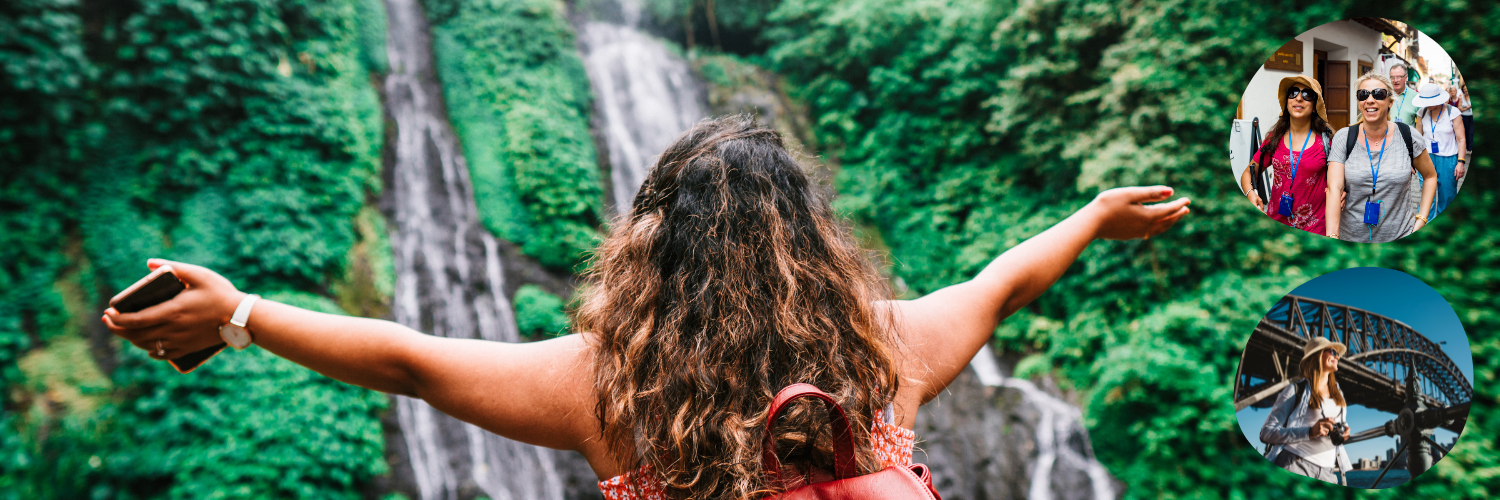Responsible Traveler - Tour Guidelines

Responsible Traveler - Tour Guidelines
If you are planning to take a tour, we have come up with a proposed set of guidelines and tips for travelers who want to do so in the most responsible way possible.
- Research the destination and its culture, customs and laws before you travel.
- Respect the local community and their culture, be considerate of your actions.
- Reduce waste and litter, use biodegradable products.
- Support local businesses and economies.
- Be aware of your impact on the environment, minimize harm to wildlife and ecosystems.
- Respect the privacy and property of others.
- Be mindful of your noise levels and behavior, especially in residential areas.
- Do not engage in unethical or illegal activities.
- Do not buy products made from endangered species or products that contribute to environmental degradation.
- Be prepared for emergencies, have travel insurance and a plan.
- Respect local customs and dress appropriately.
- Learn a few phrases in the local language to show respect and appreciation.
Maintain our best Travel Router for Internet while Traveling
These days most travelers want to be able to get online regularly while traveling to check email, get directions, check hotel and restaurant reviews, upload photos, update social media, and stay in touch with those back home. Our Travel routers can help with this.
It is definitely easier to stay connected as wireless Internet is now widely available in most parts of the world but there are still a number of situations when it can be tricky (or expensive) to connect.
As travel bloggers who regularly have to manage our business on the go, it is often really important for us to be able to get online on a regular basis while traveling and it can be very frustrating when you are in a hotel with weak Wi-Fi, you are being restricted from using multiple devices on one Internet connection, or you would like more security when using an unsecured public hotspot.
Our travel router is a compact little device which solves these common Internet issues and offers a number of features to the on-the-go traveler who wants to stay connected. It also performs the functions of a wireless access point. Just like you would use a home WiFi router to connect your devices to the Internet at home, you may also want to consider having a portable router to use when traveling.
Choose a Responsible Tour Operator
When choosing a responsible tour operator, consider the following factors:
- Environmental sustainability: Does the operator have environmentally friendly practices, such as reducing waste and preserving local ecosystems?
- Cultural sensitivity: Does the operator respect local cultures and customs, and educate travelers on cultural norms?
- Support of local communities: Does the operator support local communities by using local guides, buying local products and services, and investing in local infrastructure?
- Ethical practices: Does the operator have a code of ethics that covers issues such as wildlife exploitation and human rights?
- Transparency: Does the operator provide clear information about its practices and policies, and is it open to answering questions about its operations?
- Customer reviews: Check customer reviews to see if travelers have had positive experiences with the operator and if they felt that it was responsible and ethical.
Visit with a Local Guide
Visiting a destination with a local guide can offer numerous benefits for responsible travel:
- Cultural understanding: A local guide can provide in-depth knowledge about the culture, customs, and traditions of the area, helping travelers understand and respect local ways of life.
- Environmentally friendly: Local guides are often knowledgeable about the environment and can help travelers minimize their impact on wildlife and ecosystems.
- Safety: Local guides are familiar with the area and can provide valuable safety information and advice.
- Personalized experiences: A local guide can create a customized itinerary that meets your interests and provides a more authentic travel experience.
Visit on Foot
- Walking is a low-impact form of transportation that doesn't produce emissions or contribute to pollution.
- Walking allows travelers to explore areas that may not be accessible by car or tour bus, supporting local businesses and economies.
- Walking allows travelers to experience the local environment and culture at a slower pace, promoting a deeper understanding and appreciation of the area.
- Walking is a great form of exercise that can improve physical and mental health.
- Walking can be safer in some destinations, especially in crowded areas where vehicles may pose a danger
Don’t be in a Rush in tour
- Slowing down allows travelers to fully experience and understand the local culture, customs, and traditions.
- Taking a slower pace helps reduce the number of flights, train trips, and car rides, which can contribute to environmental degradation.
- Spending more time in one area supports local businesses and economies by increasing the amount of money spent in the community.
- Improved safety: Rushing can lead to mistakes and potentially dangerous situations, taking it slow helps ensure the trip is safer.
- Increased enjoyment: Traveling slowly allows travelers to relax, fully experience the destination, and create lasting memories.
Do a Little Bit of Research
By doing a little bit of research before and during travel, travelers can have a more informed, respectful, and sustainable experience.
- Researching the destination's culture, customs, and traditions can help travelers understand and respect local ways of life.
- Researching local businesses and services can help travelers support local economies by choosing to stay, eat, and shop in locally owned and operated establishments.
- Researching eco-friendly practices and destinations can help travelers minimize their impact on the environment.
- Researching the destination's laws, customs, and potential safety concerns can help travelers stay safe and avoid potential risks.
- Researching the destination's history, landmarks, and attractions can help travelers plan a more fulfilling and personalized trip.
Dress Respectfully and Appropriately
By dressing respectfully and appropriately, travelers can have a more respectful, safe, and enjoyable travel experience.
- Wearing appropriate clothing shows respect for local cultures, customs, and traditions, and can help prevent offense or discomfort.
- Dressing appropriately can also help travelers blend in and avoid attracting unwanted attention or becoming targets for crime.
- In some destinations, dressing inappropriately can put travelers at risk for harassment or other dangerous situations.
- Wearing comfortable and appropriate clothing can help travelers fully experience and enjoy their destination, rather than being distracted by discomfort or cultural missteps.
Bring Local Currency
You’ll want to bring local currency with you as it is likely that guides and small businesses are not going to be able to take credit cards for payment.
It is also best to leave any tips or donations in the local currency as otherwise, it costs the person money to exchange an international currency.
Of course, you do not want to carry a lot of money on you for safety reasons. So I would recommend just bringing enough to pay for the tour (if not paid for in advance), leave tips, buy souvenirs, etc.
Address
Corporate Office: 160 Robinson Road, #14-04 SBF Center, Singapore 068914(Office does not attend to product related enquiries)
Phone
+6587986824(WhatsApp Only)
